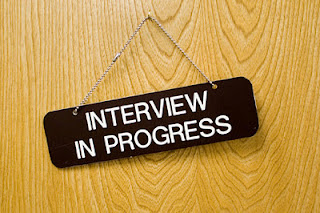We have more and more clients that are starting the interview
process with phone interviews these days. I understand how this can seem
like an efficient use of time for both the client and the candidate. And,
in many cases, it is. But, I wonder sometimes if it actually just
prolongs the process. Because, in all honesty, don’t people get hired as
much by their personality as they do by their skill set? If so, why not
just jump right into an interview that will hopefully show you both
things? And, if you are candidate about to walk in the door of an
interview, maybe some of the tips in the article below will help you in knowing
what your body is saying while your mouth is talking.
5 body language moves that will ruin an interview
Your handshake makes a critical first impression. Your dad probably taught you how to shake hands and his lesson was more important than you know. Make it firm -- not body-builder-aggressive and certainly not feeble like a dead fish. Also, be sure your hand is dry, so if you're perspiring, wipe it off before you meet your interviewer.
Don't touch your face. People touch their faces instinctively and without conscious thought. But if you want to make a good first impression, you'll need to be very conscious of where your hands are for the duration of the interview. Keep them well away from your nose and mouth, which can be a turn-off to germophobes. And for everyone else, touching your face is sometimes interpreted as a sign of dishonesty.
Don't cross your arms. Even if you only know one or two ways to read body language, you probably know this one -- crossing your arms is a sign of defensiveness and passive aggressiveness. That's not the impression you want to convey, so put your hands on the table where they can't cause you any trouble.
Don't stare. You probably know that making eye contact is a good thing, right? Well, there's a difference between positive eye contact and just plain staring. This is one of those things that should be natural, but if you think too hard about it, it is challenging to do in a natural way. The bottom line is that you want to maintain eye contact in moderation, without letting it devolve into uncomfortable staring. At the same time, don't let your eyes wander around the room as if you're bored.
Avoid nodding too much. You might think it's a good idea to nod a lot, either to appear to agree with your interviewer or to imply you're paying close attention, but the reality is that this can make you come across as sycophantic or spineless. Like eye contact, nod in moderation, and only when it's clearly appropriate. (Read More...)

